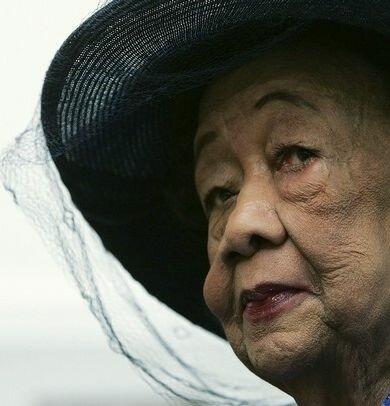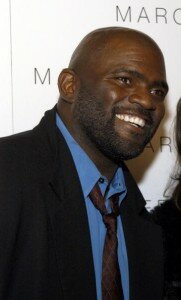Her gifts made room for us: The visionary pragmatism of Dr. Dorothy Height
African Americans, Featured — By Dr.Brittney on April 21, 2010 at 08:36In the days to come, many moving and well-deserved tributes will be written to Dr. Dorothy Height, Civil Rights pioneer and women’s rights advocate. There are many people who can do Dr. Height’s life more justice than I can, and I hope they will. But as a scholar who works on Black women’s intellectual history, I want to share a few ways Dr. Height’s life and accomplishments inspired me when I encountered her autobiography Open Wide the Freedom Gates as a graduate student.
Her pioneering work as President of the National Council of Negro Women will perhaps be Dr. Height’s most enduring legacy. Having been mentored by NCNW founder, the venerable Mary McLeod Bethune, Height is situated within a multi-generational tradition of powerful, public, and purposive Black female leadership. That tradition began in the 1890s with Mary Church Terrell, Ida B. Wells and the National Association of Colored Women, continued with the efforts of Ms. Bethune first as President of the NACW and then later as founder of the NCNW, and marched boldly into the 21st century on the shoulders of Dr. Height. This is a powerful legacy of transformational black female leadership.
Dr. Height was an expansive and visionary thinker, the quintessential visionary pragmatist of Black feminist lore– that Black woman who blends her dreams for a better future with a skillful ability to confront and transform the conditions we face today. I think here of the photos I saw at the NCNW archives in Washington, D.C. of Dr. Height standing on a pig farm in Mississippi with Civil Rights worker Fannie Lou Hamer, surveying the success of their joint initiative, the Pig Farm Cooperative, an economic empowerment strategy that the two women implemented to economically empower rural Black families.
I am still star-struck by the sheer number of folks with whom Dr. Height worked in her 70+ year career. Among my favorites are Anna Arnold Hedgeman, Pauli Murray, Ella Baker, Lorraine Hansberry, Malcolm X, Sidney Poitier, Bayard Rustin, and of course, Dr. King. It is through her work with King and Rustin that Dr. Height was allowed to sit on stage during the March on Washington, a consolation prize offered for their decision not to let women speak at the march.
Addressing this incident in her autobiography, Dr. Height remarked wryly that while “men were happy to include women in the human family, there is no question about who was head of household.” The observation still holds true today. Knowing what she did about the sexual politics of Black liberation as intimately as she did, I am left wondering how she negotiated love and partnership in her own life, or if she simply chose to reject it all together. These are private narratives that we often never know about public Black women, largely because we fail to make room for them to bring their whole selves to the struggle.
Dr. Height was a walking vessel of our collective story, a national treasure whose life demonstrates the importance of our connections with those who came before. The stories she told and the battles she fought and won challenge us to struggle for the things that matter, to be willing to change our minds when the evidence is compelling enough, and to be willing to stand for what is good, just, true, and right. There is a Biblical verse that says “your gifts will make room for you.” As Dr. Height rests in peace, I am reminded that her gifts made room for us.
Tags: African-Americans, black women, Dr. Dorothy Height, race, Talking about Race, WomenAuthor: Dr.Brittney (9 Articles)

Brittney Cooper Ph.D. is an Assistant Professor of Women's Studies at the University of Alabama. She earned her Ph.D. at Emory and her undergraduate at Howard.



 Share This
Share This Tweet This
Tweet This Digg This
Digg This Save to delicious
Save to delicious Stumble it
Stumble it





 CDC says African Americans are most affected by HIV in the US
CDC says African Americans are most affected by HIV in the US Before you convict Lawrence Taylor for rape, consider this
Before you convict Lawrence Taylor for rape, consider this The liquor merchants in Nebraska won the last election on prohibition
The liquor merchants in Nebraska won the last election on prohibition The pipe dream of a post-racial America
The pipe dream of a post-racial America







